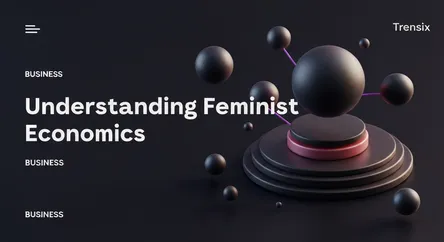Business
Understanding Feminist Economics

Discover Feminist Economics, a critical perspective that challenges traditional models by incorporating gender awareness and valuing unpaid labor.
What is it?
Feminist Economics is a school of thought that critiques mainstream economic theory for its perceived gender-blindness. It argues that traditional economics often ignores the significant economic contributions of unpaid work, such as childcare, elder care, and household management, which are disproportionately performed by women. This approach seeks to create a more inclusive and accurate picture of economic life by analyzing how gender roles, power dynamics, and social structures impact economic outcomes. It advocates for incorporating gender-aware analysis into all economic modeling and policymaking to achieve a more equitable and sustainable economy for everyone.
Why is it trending?
The concept is gaining traction as global conversations around gender inequality intensify. The COVID-19 pandemic starkly highlighted society's reliance on the 'care economy,' exposing how essential yet undervalued this work is. As issues like the gender pay gap, the 'motherhood penalty,' and the lack of women in economic leadership roles enter mainstream discourse, feminist economics provides a robust framework for understanding and addressing these systemic problems. This has led policymakers and organizations to explore its principles for creating more resilient and fair economic systems.
How does it affect people?
Feminist Economics directly impacts policy and daily life. It champions policies like subsidized childcare, paid parental leave, and equal pay legislation, which help balance professional and domestic responsibilities. By assigning economic value to unpaid care work, it can influence national accounting, social security benefits, and tax policies. For individuals, this perspective encourages a re-evaluation of household labor distribution and supports workplace policies that promote a healthier work-life balance, ultimately benefiting families, communities, and the broader economy by unlocking the full potential of all its members.